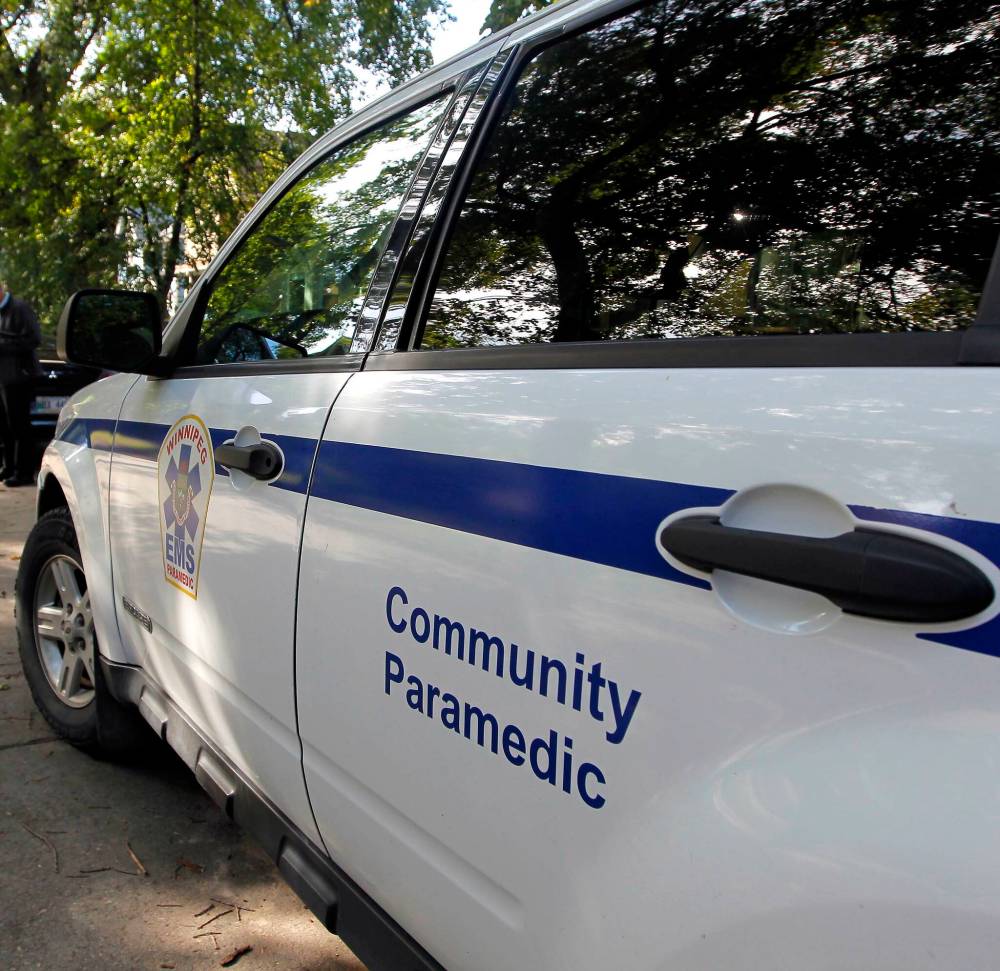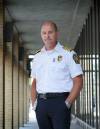Shared Health launches rural ’community paramedics’ program connecting patients to needed services
Advertisement
Read this article for free:
or
Already have an account? Log in here »
To continue reading, please subscribe:
Monthly Digital Subscription
$0 for the first 4 weeks*
- Enjoy unlimited reading on winnipegfreepress.com
- Read the E-Edition, our digital replica newspaper
- Access News Break, our award-winning app
- Play interactive puzzles
*No charge for 4 weeks then price increases to the regular rate of $19.00 plus GST every four weeks. Offer available to new and qualified returning subscribers only. Cancel any time.
Monthly Digital Subscription
$4.75/week*
- Enjoy unlimited reading on winnipegfreepress.com
- Read the E-Edition, our digital replica newspaper
- Access News Break, our award-winning app
- Play interactive puzzles
*Billed as $19 plus GST every four weeks. Cancel any time.
To continue reading, please subscribe:
Add Free Press access to your Brandon Sun subscription for only an additional
$1 for the first 4 weeks*
*Your next subscription payment will increase by $1.00 and you will be charged $16.99 plus GST for four weeks. After four weeks, your payment will increase to $23.99 plus GST every four weeks.
Read unlimited articles for free today:
or
Already have an account? Log in here »
Hey there, time traveller!
This article was published 06/05/2025 (217 days ago), so information in it may no longer be current.
Paramedics in rural Manitoba are doing community outreach and connecting vulnerable patients to needed services.
Shared Health announced Tuesday it has launched two specialized units based out of Brandon and Selkirk staffed by “community paramedics” who are scheduled daily between 7 a.m. and 7 p.m.
Program manager Loren Bacala said the nature of emergency medical services is typically episodic, and that can be a barrier to connecting patients to services and supporting continuous care.

“If, for example, paramedics show up at a home following a 911 call and the patient refuses transport (to hospital), there is no clear pathway for followup,” Bacala said in a news release.
“With a community paramedicine program in place, that patient can be referred for followup and connected to the most appropriate care for their needs.”
A spokesperson for Shared Health said the initiative is modelled after one in Winnipeg.
The Winnipeg Fire Paramedic Service started EPIC — Emergency Paramedics in the Community — more than a dozen years ago.
Health-care workers’ success with relationship-building and reducing repeat calls to 911 prompted an expansion of EPIC in 2019, the City of Winnipeg’s website says.
EPIC is staffed by advanced-care paramedics who travel in SUVs and provide health assessments, intervention and referrals to home care and other programs.
In a news release Tuesday, Shared Health indicated its community paramedics will not be responding to 911 calls on ambulances.
“Because of this, they have the ability to spend time with identified patients to provide more in-depth care and truly understand their needs, referring them to allied health services as appropriate,” the release said.
The program is expected to be expanded to serve other rural communities.
maggie.macintosh@freepress.mb.ca

Maggie Macintosh
Education reporter
Maggie Macintosh reports on education for the Free Press. Originally from Hamilton, Ont., she first reported for the Free Press in 2017. Read more about Maggie.
Funding for the Free Press education reporter comes from the Government of Canada through the Local Journalism Initiative.
Every piece of reporting Maggie produces is reviewed by an editing team before it is posted online or published in print — part of the Free Press‘s tradition, since 1872, of producing reliable independent journalism. Read more about Free Press’s history and mandate, and learn how our newsroom operates.
Our newsroom depends on a growing audience of readers to power our journalism. If you are not a paid reader, please consider becoming a subscriber.
Our newsroom depends on its audience of readers to power our journalism. Thank you for your support.



